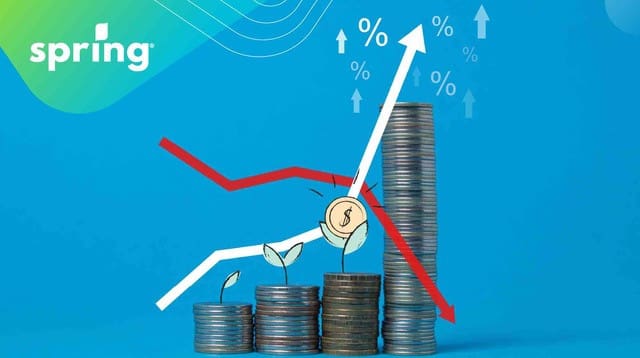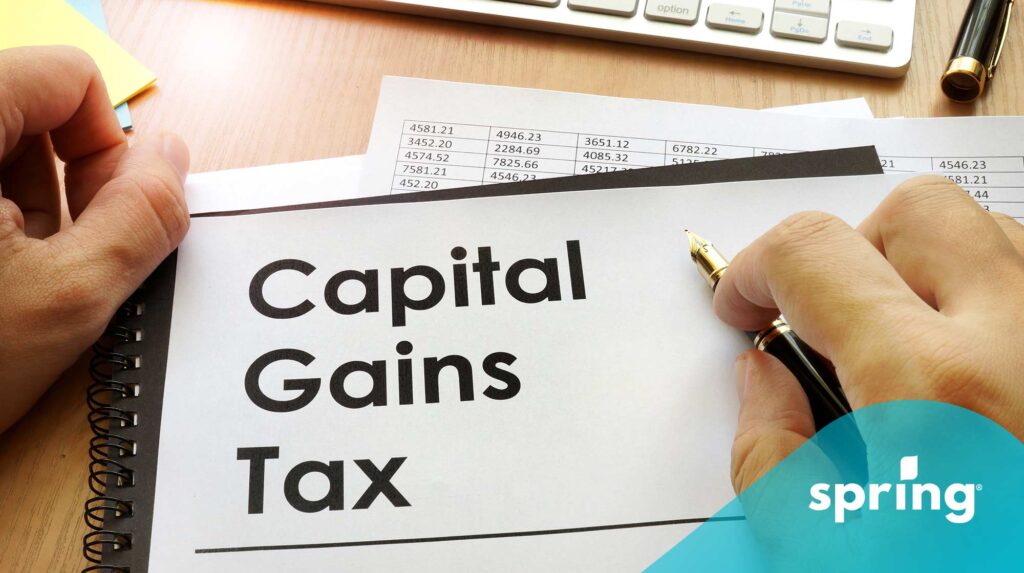As a homeowner, you have options when it comes to getting the funding you need. Instead of turning to high-interest credit cards or expensive personal loans, you can take advantage of more affordable alternatives like a home equity loan or home refinance. Both options allow you to withdraw substantial amounts based on the equity available in your home.
What is Home Equity?In simple terms, home equity is the amount of your home you actually own. You can calculate your home equity by subtracting the outstanding balance of your mortgage loan from the value of your home. If your home is worth $600,000 and you have $400,000 left on your mortgage, your home equity would be $200,000. Home equity grows as you repay your mortgage and if your property increases in value. |
Your credit score will play a role when determining your eligibility and there may be appraisal fees, legal fees, and other costs associated with these products. Some lenders are willing to waive these so don’t be afraid to ask.
Although they fulfill the same purpose, home equity loans and mortgage refinancing are not the same thing. Refinancing breaks your current mortgage so you can start a new one with a different interest rate, term, and monthly payment.
A home equity loan is considered a “second mortgage” because you’ll make a second monthly payment on top of your mortgage. Choosing the best option can save you thousands of dollars in fees and interest, so it’s important to consider the pros and cons of each before making a decision.
What is Mortgage Refinancing?
Mortgage refinancing gives you the chance to replace your mortgage loan with a new one. What’s great about this option is it lets you lock in a better interest rate when the market changes. You can also borrow an amount that’s larger than your existing mortgage, allowing you to pay off your old mortgage in full and use the leftover cash to cover major expenses like a home renovation. Refinancing can be done with a new lender so it’s smart to shop around for the best rates.
The most you can get from a mortgage refinance in Canada is 80% of your home’s appraised value minus the balance of your current mortgage. Let’s say you want to add a deck to your property. Your home is worth $350,000 (80% = $280,000) and you still have $200,000 left on your mortgage. A lender can give you $200,000 to pay off your existing mortgage and up to $80,000 in cash for your home improvement project. After refinancing, your new mortgage balance would be $280,000.
Benefits of Refinancing Your Mortgage:
- Lower interest rates and monthly payments
- Opportunity to change your loan type and term
- Ability to turn home equity into cash
Refinancing a mortgage isn’t always a great deal. There are penalties to pay if you break your mortgage early. Make sure you crunch the numbers beforehand to find out how much you’ll be saving. A good rule of thumb is to secure an interest rate decrease of at least 0.5% to cover extra fees.

When Should You Refinance Your Mortgage?
Mortgage refinancing is worth pursuing if:
- You want to lock in a lower rate: Take advantage of market changes and pay off your mortgage sooner by securing a lower interest rate.
- Your credit score has increased: There’s a good chance you’ll qualify for a better rate if your credit has improved since you purchased your home.
- You plan to consolidate debt: Swapping high-interest debt with a low-interest mortgage can simplify your finances and save you a fortune. Keep in mind debt consolidation will not solve problems like overspending. Make sure you can resist temptation and follow a budget before you decide to refinance.
- You want to renovate your home: If you have a solid credit score and enough equity in your home, you can trade that equity for cash and use it to renovate your property to increase its value.
Refinance your mortgage with Spring Financial
Access better rates and pay off your mortgage quicker.
When Shouldn’t You Refinance Your Mortgage?
You should avoid refinancing if:
- Your credit score has decreased: Refinancing can result in a higher interest rate if your credit score has dropped since you bought your home.
- You plan to move within the next few years: There’s no point in refinancing if you’re not staying long-term because the savings from refinancing won’t cover the costs of restructuring the mortgage loan.
- You want to use the money for discretionary spending: Taking out more debt to pay for recreation and entertainment expenses can put your home in jeopardy if you fail to make the monthly payments. Remember to only borrow what you need and spend on things that will help you get ahead financially.
What is a Home Equity Loan?
Often referred to as a “second mortgage”, home equity loans are a form of borrowing where you can use the equity in your home as collateral. In Canada, you’ll generally need to own at least 20% of your home to qualify for a home equity loan. The benefits of these loans include:
- Lower interest rates compared to unsecured loans and credit cards
- Ability to borrow larger amounts if you have enough equity
- Flexible options based on your borrowing needs
- Easy access to credit
You can choose from two kinds of home equity loans.
Home Equity Line of Credit (HELOC)
A HELOC functions like a normal line of credit – the only difference is that it’s secured against your property. Credit limits go no higher than 65% of your home’s appraised value. After getting approved, you’re free to withdraw whenever you want during the draw period. Draw periods can last between three to ten years, allowing you to tap into ongoing funds when you need it most.
When the draw period is over, you no longer have access to credit and must begin repayments. With a HELOC, you only pay interest on the amount you take out and can pay back the loan any time without penalty. Monthly payments may fluctuate as HELOCs typically have variable interest rates.
Traditional Home Equity Loan
Instead of withdrawing money over a certain period, a home equity loan gives you a one-time lump sum payment. The maximum amount you can obtain is 80% of the appraised value of your home minus the balance of your current mortgage. For example, if your home is worth $500,000 (80% = $400,000) and your outstanding mortgage is $300,000, you could get a home equity loan of up to $100,000.
Interest is charged on the full amount, which is repaid over a set period. Home equity loans usually have fixed interest rates so your monthly payments will always stay the same. They’re also easier to qualify for if you have bad credit since you’re leveraging your home to guarantee the loan.
Get a home equity loan from Spring Financial
Secure the funds you need without the high borrowing costs.
When is a Home Equity Loan a Good Idea?
If you need a substantial amount of cash but already have a low mortgage rate, a home equity loan makes more sense than refinancing.
Here are a few scenarios where home equity loans can work for you.
Consolidating Debt
Using an affordable home equity loan to pay off high-interest credit card debt can streamline your monthly payments and save you lots of money in the long run. If you go this route, take some time to understand how you got into debt in the first place so you don’t make the same mistake twice. It’s also a good idea to budget or use a budgeting app to minimize your chances of falling behind on payments.
Repairing or Renovating Your Home
From fixing the roof to remodelling the kitchen, home improvement projects increase the value of your property while making it more enjoyable to live in.
Making a Significant Purchase or Investment
Whether you’re ready to launch your own business or go back to university, a home equity loan can set you up for future success by providing large amounts of funding at a lower cost.
When is a Home Equity Loan a Bad Idea?
Just because you can leverage the equity in your home doesn’t mean it’s always smart to do so. Taking out a home equity loan to fund non-essential things like vacations or a second property is not recommended because it puts your house at unnecessary risk. If you end up overspending and can’t make your payments on time, you could lose your home to foreclosure.
Get a Home Equity Loan or Refinance Your Mortgage at Spring Financial
Spring Financial provides mortgage refinancing, home equity loans, and other convenient financial products to Canadians just like you. It doesn’t matter if you’re new to credit or have bad credit, Spring Financial makes it easy for you to get the money you need as quickly as possible.
Why choose Spring Financial:
- Convenient products for all: From personal loans to auto loans, Spring Financial gives you easy access to a variety of financial products, regardless of your current credit situation.
- Seamless online application: Skip the stress of in-person meetings and get approved from the comfort of your home.
- Exceptional customer service: Our live agents are ready to assist you 24 hours a day, seven days a week.
- Trusted lender: Spring Financial serves thousands of Canadians every day – see what they have to say on Trustpilot.
Get started today by applying for a home equity loan or mortgage refinancing. Still not sure which option is best for you? Speak with a live representative and get personalized advice by calling 1-888-781-8439.








